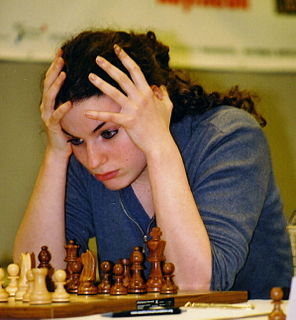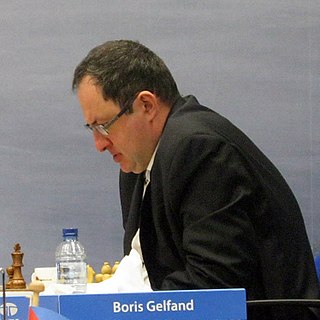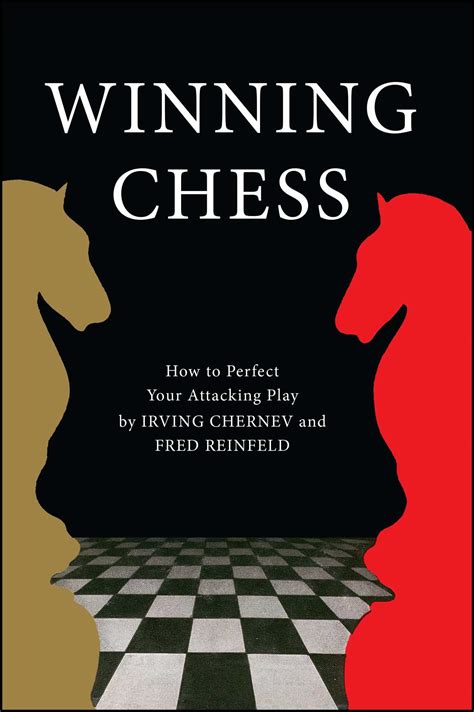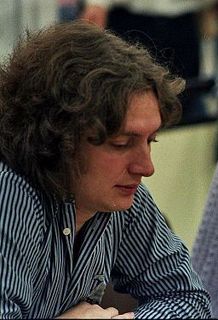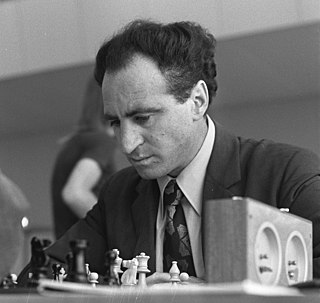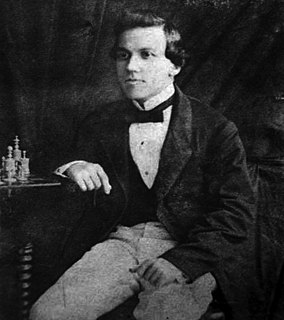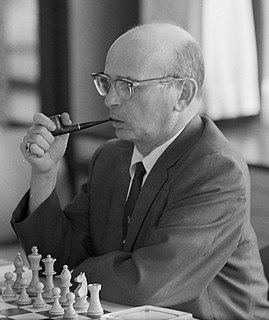A Quote by Siegbert Tarrasch
Chess is a form of intellectual productiveness, therein lies its peculiar charm. Chess, like love, like music, has the power to make men happy.
Related Quotes
A form of intellectual productiveness, therein lies its peculiar charm. Intellectual productiveness is one of the greatest joys - if not the greatest one - of human existence. It is not everyone who can write a play, or build a bridge, or even make a good joke. But in chess everyone can, everyone must be intellectually productive, and so can share in this select delight. I have always a slight feeling of pity for the man who has no knowledge of chess, just as I would pity the man who has remained ignorant of love. Chess, like love, like music, has the power to make men happy.
I love the competitive aspect of it [business]. It's like playing chess. Why do people play chess? Knowing the realm of moves? Even when you get to be a chess master, there are other chess masters you want to beat or outperform. And to me business is just a sport that I love to compete in; a continuous intellectual challenge that really motivates me.
I love chess, and I didn't invent Fischerandom chess to destroy chess. I invented Fischerandom chess to keep chess going. Because I consider the old chess is dying, it really is dead. A lot of people have come up with other rules of chess-type games, with 10x8 boards, new pieces, and all kinds of things. I'm really not interested in that. I want to keep the old chess flavor. I want to keep the old chess game. But just making a change so the starting positions are mixed, so it's not degenerated down to memorisation and prearrangement like it is today.
Like Dvoretsky, I think that (all other things being equal), the analytical method of studying chess must give you a colossal advantage over the chess pragmatist, and that there can be no certainty in chess without analysis. I personally acquired these views from my sessions with Mikhail Botvinnik, and they laid the foundations of my chess-playing life.
I used to play a lot of chess and competitive chess and study chess and as you get to the grandmasters and learn their styles when you start copying their games like the way they express themselves through... The way Kasparov or Bobby Fischer expresses themselves through a game of chess is it's astonishing. You can show a chess master one of their games and they'll say "Yeah, that is done by that player."
Most chess books only sell a few thousand copies, and a book titled something like "Women in Chess" would sell even fewer. The idea with this title was to spread the book outside the competitive chess world. I'm interested in attracting readers who love chess but play only casually, and feminists interested in male-dominated fields.






